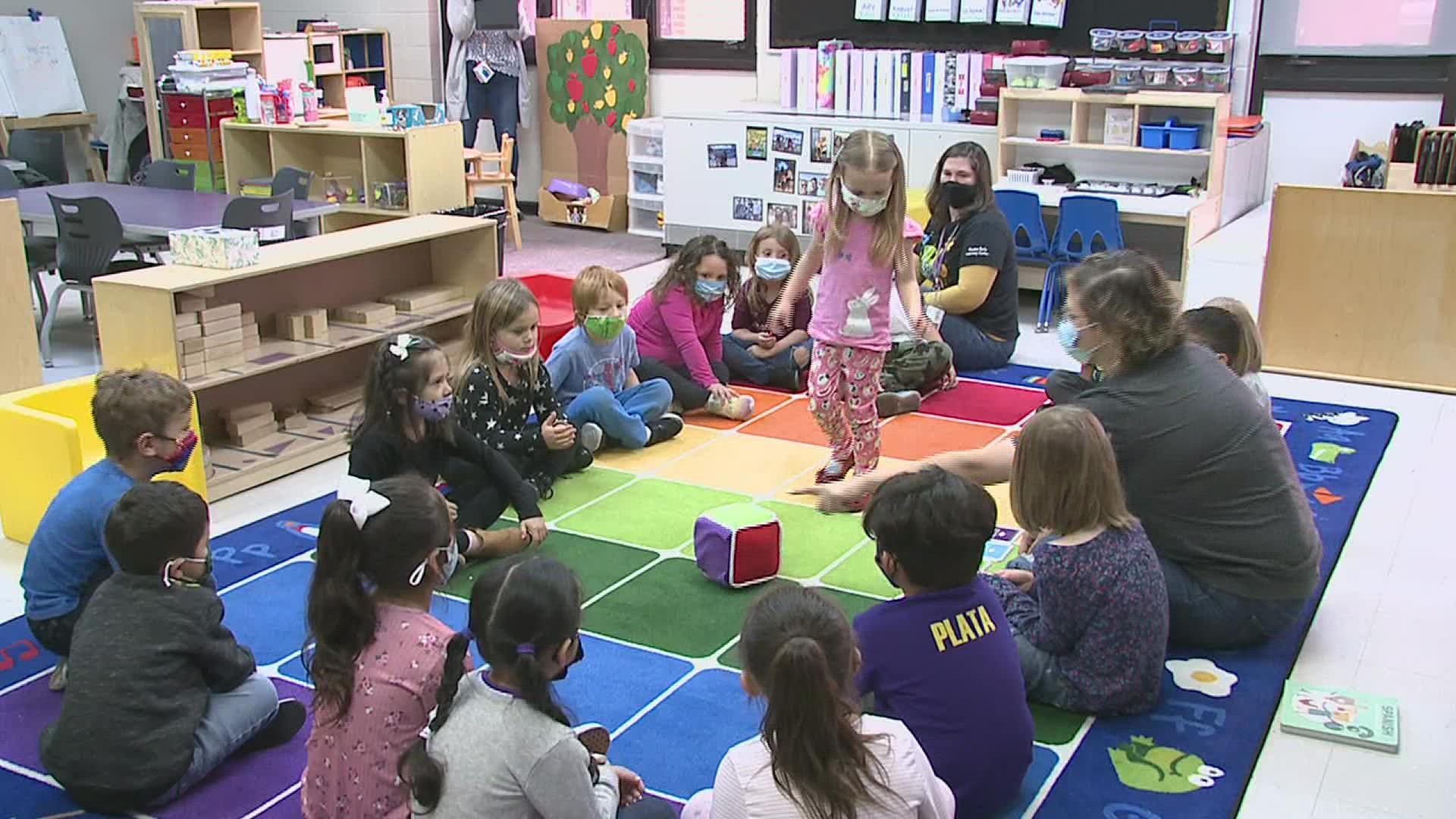MUSCATINE, Iowa — At just four-years-old these Muscatine students are learning two languages in their classroom. Noelia Espinal is the teacher in this bilingual classroom at the Muskie Early Learning Center.
It's the first year for the program that is teaching pre-k students both Spanish and English.
"Spanish in the morning, English in the afternoon," Espinal said.
It's only November, but she says she can see the progress in her students already. The class is split with half being native Spanish speakers, and the other half being native English speakers.
"I had parents say they are much more comfortable speaking Spanish at home. Kids that are native Spanish speakers that would answer more in English are now answering more in Spanish," Espinal said. "English speakers, they go home and parents ask what words are you working on?"
Class is just like any other preschool class you might walk into, only these students are doing it in two languages.
"They're seeing literacy, they're seeing and writing in both languages," Espinal said. "We hit math, writing, fine motor, just whatever we need to touch on for that day."
Instead of waiting until junior high or high school, these students are starting to learn a second language while they are considered to be far more susceptible to learning.
Local Unity Point Trinity neurosurgeon Mathieu Levesque says you can learn at anytime in your life, but when you're young it's much easier.
"That young brain is very adaptable. It builds new connections way more efficiently and faster than the adult brain does," Levesque said. "And as we age, there is a kind of incremental decrease in our capacity to learn."
Doctor Levesque says there are other major benefits too.
"Children that are bilingual or that learn more than one language tend to be better at understanding thoughts, intuitions, the intent of other people, and they have a slightly better capacity of empathy," Levesque said. "So putting themselves in others shoes."
For now the program is just for Muscatine preschoolers, but the district hopes to expand it all the way up to sixth-grade students.
Espinal, sees a major benefit in allowing more students the potential to develop these skills.
"If we continue it on, they would get a seal of biliteracy from the state that would help change language requirements in high school and possibly college," Espinal said. "If they're already bilingual it would make it a benefit for them."

